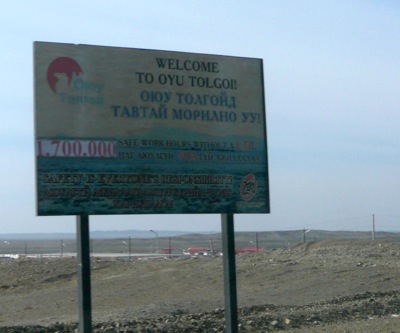Mining wealth distribution at heart of Mongolia’s presidential elections

On Wednesday Mongolians go to the polls to choose a new president, with analysts predicting current leader Tsakhia Elbegdorj, who won the previous election mainly by promising a greater share of Mongolia’s mineral wealth for each citizen, will be reappointed for a second term.
While Elbegdorj is likely to continue his policy of using foreign cash to help boost Mongolia’s economy, IHS Country Risk Analyst Neil Ashdown, says it is not great news for miners.
The President, a former Colorado School of Mines graduate, supports increasing the level of state and local government control on the mining sector, Ashdown warns.
“This will have implications for Mongolia’s relationship with existing and prospective foreign investors,” says Ashdown. “Large, medium and small-sized miners operating in the country will be affected, but Rio Tinto’s Oyu Tolgoi project, being the single largest foreign investment in the country, will be the highest profile target.”
Mongolia’s economy grew by 17.5% in 2011 and 12.3% last year, mainly thanks to the country’s mining boom and, particularly, to the initial phases of Rio’s mega-project in the Gobi Desert.
However, Rio has had a tough time trying to start shipping copper from Oyu Tolgoi, being forced to delay it twice in less than two weeks.
According to Al Jazeera’s sources, it is no coincidence the suspensions happened just before Mongolia’s presidential poll this week, because Oyu Tolgoi is the top overseas investment in the country “and resource nationalism has been a major election issue.”
Regardless of who is elected, analysts agree the first order of business for the new president would likely be the start of production at the $6.6 billion massive copper-gold mine.
“It is possible the delay relates to the on-going negotiations between the government of Mongolia and Rio Tinto. If this indeed the issue, then it is unlikely to be resolved before the election,” says Ashdown.
Turquoise Hill Resources (NYSE,TSX:TRQ), the owner of the massive copper-gold mine in Mongolia, which is controlled by Rio Tinto, has indeed been locked in often bitter negotiations with the government of Mongolia about the future of the mine for months.
The deposit is set to produce more than 1.2 billion pounds of copper, 650,000 ounces of gold and 3 million ounces of silver each year if built to capacity.
Image from Wikimedia Commons
{{ commodity.name }}
{{ post.title }}
{{ post.date }}




Comments